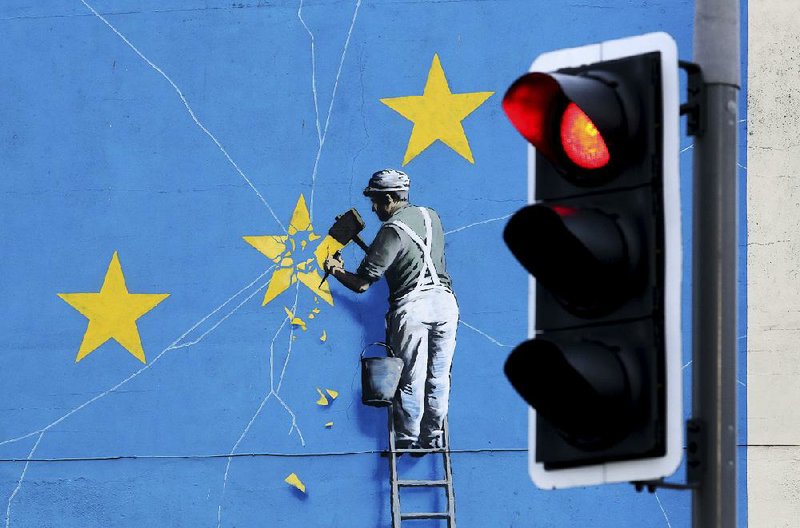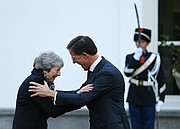BRUSSELS -- British Prime Minister Theresa May said she found "a shared determination" Tuesday among some European leaders to help persuade the British Parliament to accept a proposed divorce deal, but her continental counterparts insisted that any room for revisions is small.
With many British lawmakers opposing the deal on the terms of Britain's breakup and future relationship with the European Union, May on Monday postponed a planned vote in the House of Commons instead of seeing it rejected.
While EU officials ruled out a renegotiation of the exit agreement, European Commission President Jean-Claude Juncker gave May a crumb to take back to lawmakers, saying that "room enough" might exist for "clarifications and further interpretations" to be made at a leaders summit Thursday.
The kind of significant legal changes that would boost May's position seemed out of the question, though.
"Clear that EU27 wants to help. The question is how," tweeted EU Council President Donald Tusk, referring to the 27 member countries that will remain in the EU after Britain leaves.
May fought to save the deal by lobbying several fellow nation's leaders, racing from London to The Hague, Berlin and Brussels in search of support that would help push the agreement through at home.
Today, May plans to visit Irish Prime Minister Leo Varadkar in Dublin amid her worsening political woes at home. Some anti-EU members of May's Conservatives said Tuesday that opponents had collected the 48 letters from party lawmakers needed to trigger a no-confidence vote in their leader.
A previous claim of reaching the threshold turned out to be premature, but anger over May's handling of Britain's departure from the EU has been growing within her party.
If May survives a vote of no-confidence by Conservative colleagues, she can't be challenged again for a year. If she loses the vote, she will be replaced.
Despite the odds mounting against her, May remained defiant.
"We are just at the start of the negotiations and the start of the discussions," May said after meeting with Tusk.
The British Parliament has until Jan. 21 to vote on the deal, a little more than two months before the nation's March 29 departure date.
EU leaders have said the agreement isn't open for discussion.
"There is no room whatsoever for renegotiation," Juncker told EU lawmakers in Strasbourg, France, as he briefed them on Thursday's summit.
The main sticking point since the negotiations began almost two years ago is how to keep goods flowing seamlessly between EU member Ireland and the U.K.'s Northern Ireland.
Determined to avoid a "hard border" after Britain's departure, the EU and Ireland demanded a "backstop" guarantee in the agreement. The provision would keep Britain under EU customs rules through 2020 or until both sides agree on a better solution. The deadline could be extended.
Information for this article was contributed by Mike Corder, Jill Lawless and Geir Moulson of The Associated Press.
A Section on 12/12/2018


